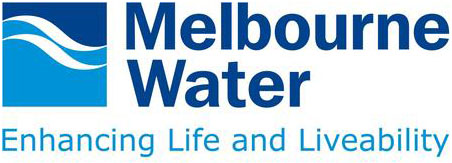training and events
Construction Hold Points Training - Bio-retention Systems (Online) September 2024
Monday 2nd Sep 2024 9:00AM - 12:30PM
Online - Zoom
Registrations are now closed
Course Overview:
Clearwater and Melbourne Water developed this training course to help local government improve their skills and processes in Water Senstive Urban Design (WSUD) construction management to ensure WSUD assets are constructed as designed and fully-functional to accept at handover.
This training aims to improve theoretical and practical understanding of the hold points required for construction of bio-retention systems specifically for those responsible for inspecting construction milestones for WSUD assets.
The course will:
- Introduce the basic concepts of Water Sensitive Urban Design (WSUD) and Integrated Water Management (IWM)
- Build knowledge of common bio-retention construction risks and how to avoid them
- Teach participants the critical hold-points to assess that assets are being constructed as designed
- Highlight actions to streamline the design-construction-handover process, with focus on roles and responsibilities
- Provide practical learning through visual footage of real hold point inspection visits
- Build organisational capacity, collaboration and commitment on the topic
- Identify and drive further action to improve processes and address priority issues
- Define critical concepts such as ‘raingardens’, ‘bio retention systems’ and ‘treat to best practice’
This session can be completed as a standalone session or as a companion program with Clearwater's Construction Hold Points Wetlands Systems course.
Learning Outcomes
By the end of this session, participants will have:
- Learned how experienced practitioners conduct critical hold-points assessments to ensure assets are constructed as designed
- Built knowledge of common WSUD construction issues and how to avoid them
- Improved your understanding of how to streamline the WSUD design-construction-handover process, including roles and responsibilities
- Shared and discussed challenges, pitfalls and solutions with a network of industry peers
Audience
Ideal for project site inspectors and project management staff, WSUD officers, engineers and environmental officers from government or commercial organisations. Clearwater encourages professionals working in the following areas to attend:
- Stormwater management (including those overseeing project funding and grants)
- Waterway & catchment management
- Water / waste water / drainage infrastructure management
- Project and construction management
Pre-requisites: Due to the technical content of this workshop, participants should have a sound understanding of WSUD principles and different types of stormwater treatment technologies.
Course Presenters/Facilitators
*Presenters for each course will vary subject to availability*
Alexandra Brown – Principal Water Engineer and General Manager of Practice Areas at Spiire:
Alexandra is passionate about the sustainable integration of water into communities. As a Chartered Professional Engineer, she brings a wealth of technical knowledge and leadership experience to her role managing Spiire’s Practice Areas.
Alexandra has experience working as a consultant in all phases of the urban stormwater cycle, from strategic planning through design, construction supervision and asset audits and rectification. Her expertise includes integrated water management, water sensitive urban design, catchment management, hydrology, hydraulics and urban drainage design. She works closely with local councils, authorities and private developers in a collaborative and innovative approach that delivers solutions for a range of projects in the greenfield, brownfield, government and infrastructure sectors.
Jamie Comley Environmental Consultant & Director J Comley Consulting
Jamie is an Environmental Engineer and Urban Planner with over 16 years’ experience in sustainable water management. His experience encompasses a broad range of technical, strategic, policy and research areas of Integrated Water Management (IWM) and Water Sensitive Urban Design (WSUD). He holds specialist expertise in stakeholder engagement, program design and integrating sustainable water management into land use planning.
Naturally collaborative, Jamie is passionate about working collaboratively to improve liveability outcomes and ensure effective management of WSUD/IWM assets.
Ross Carnegie Associate – Integrated Water Engineer, Spiire
Water Resources Engineer with a passion for focused environment, landscape, and community outcomes from water projects. Predominantly filling leadership or project management roles, I am always looking for new ways our industry can create more sustainable solutions that we can be proud of for years to come.
